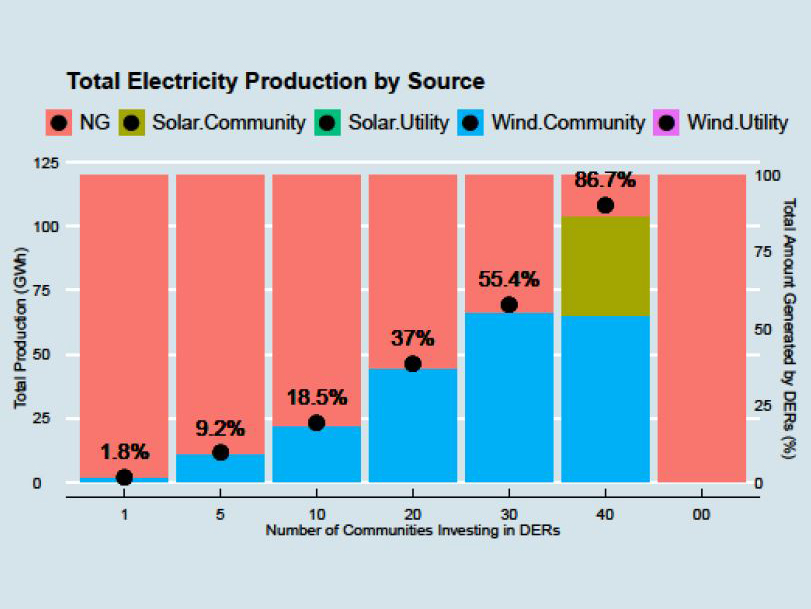Abstract:
Distributed energy resources (DERs) have the potential to lower energy costs and increase energy resilience. However, they complicate the current energy system and can negatively affect a utility’s cost and reliability. Existing frameworks for modeling DER integration are complicated and lack clear insights. One approach to simplify the DER integration problem would be to use a decomposition technique. Decomposition techniques simplify models, make them easier to solve and provide clear and useful insights. Decomposing DER integration into a model with disjoint utility and community problems creates a clear, efficient, and decipherable model. In this study, I use a decomposition framework to investigate the benefits of DERs and their effects on utilities. My results show that DERs lower the overall cost of electricity, lower utility demand which forces utilities to raise prices, and that communities overcome intermittency by using the utility as backup power.
Keywords: Distributed, Energy Systems, Optimization, Decomposition
